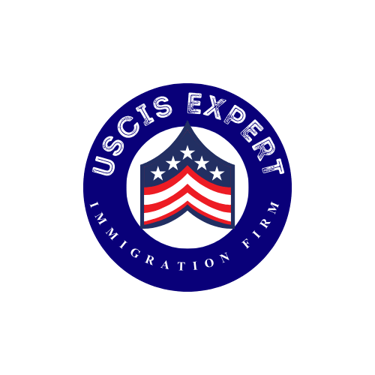Form I-730: Refugee/Asylee Relative Petition
Reunite with Your Family — Bring Your Loved Ones to Safety
Form I-730, Refugee/Asylee Relative Petition, allows individuals who have been granted asylum or admitted to the United States as refugees to reunite with certain close family members. This petition enables eligible relatives to join you in the U.S. and gain the same refugee or asylee status — helping families rebuild their lives together in safety and stability.
✅ Who Can File Form I-730?
You can file Form I-730 if you are either:
A principal refugee admitted to the U.S. within the last 2 years, OR
A principal asylee granted asylum within the last 2 years.
In certain circumstances, you may be able to file later if there are humanitarian reasons or if your delay was beyond your control.
✅ Who Qualifies as a Beneficiary?
With Form I-730, you may petition for:
✅ Your Spouse — The marriage must have existed before you were granted asylum or refugee status.
✅ Your Unmarried Children Under 21 — The child must have been unmarried and under age 21 at the time you were granted asylum or admitted as a refugee.
This petition does not extend to other relatives, such as parents, siblings, or married children.
✅ How the I-730 Process Works
Step 1 — File the Petition:
Complete and submit Form I-730 with USCIS. You must provide evidence of your refugee or asylee status and proof of your relationship to your spouse or child (such as marriage certificates, birth certificates, and photos).
Step 2 — USCIS Reviews the Petition:
USCIS will review the petition to verify your status and the family relationship.
Step 3 — Overseas Processing or Adjustment:
If your family member is outside the U.S., the approved petition will be sent to a U.S. embassy or consulate. Your family member will attend an interview and, if approved, receive travel documents to come to the U.S.
If your family member is already in the U.S. and eligible, they may apply for an adjustment of status through USCIS.
Step 4 — Admission as Refugee or Asylee:
When your relative arrives, they will be admitted as a derivative refugee or asylee — and may live and work in the United States. After one year, they can apply for lawful permanent residence (a green card).
✅ Benefits of Filing Form I-730
✅ Keep your family together — reunite with your spouse and children in the United States.
✅ Bring your loved ones to safety and stability.
✅ Derivative refugees and asylees have the same protections as the principal applicant.
✅ Eligible to apply for a green card after one year of continuous presence in the U.S.
✅ How USCIS Expert Helps
Reuniting refugee and asylee families is a core part of our mission at USCIS Expert. Our experienced team helps you:
✅ Confirm eligibility for you and your family.
✅ Gather and prepare all supporting documents for a strong petition.
✅ File Form I-730 accurately and on time.
✅ Navigate interviews, consular processing, or adjustment of status.
✅ Ensure you and your family feel supported at every step — from petition to safe arrival in the U.S.
Rebuild Your Life Together
Your family deserves to be together in a place of safety and hope. If you’ve been granted asylum or refugee status, USCIS Expert is ready to guide you through the I-730 process with care and efficiency.
✅ Contact us today to find out how we can help bring your loved ones home to you — and help your family build a secure future in the United States.
Support
Your trusted partner for immigration and visas.
info@uscisexpert.com
+1 (800) 707-0510
© 2025. All rights reserved.
